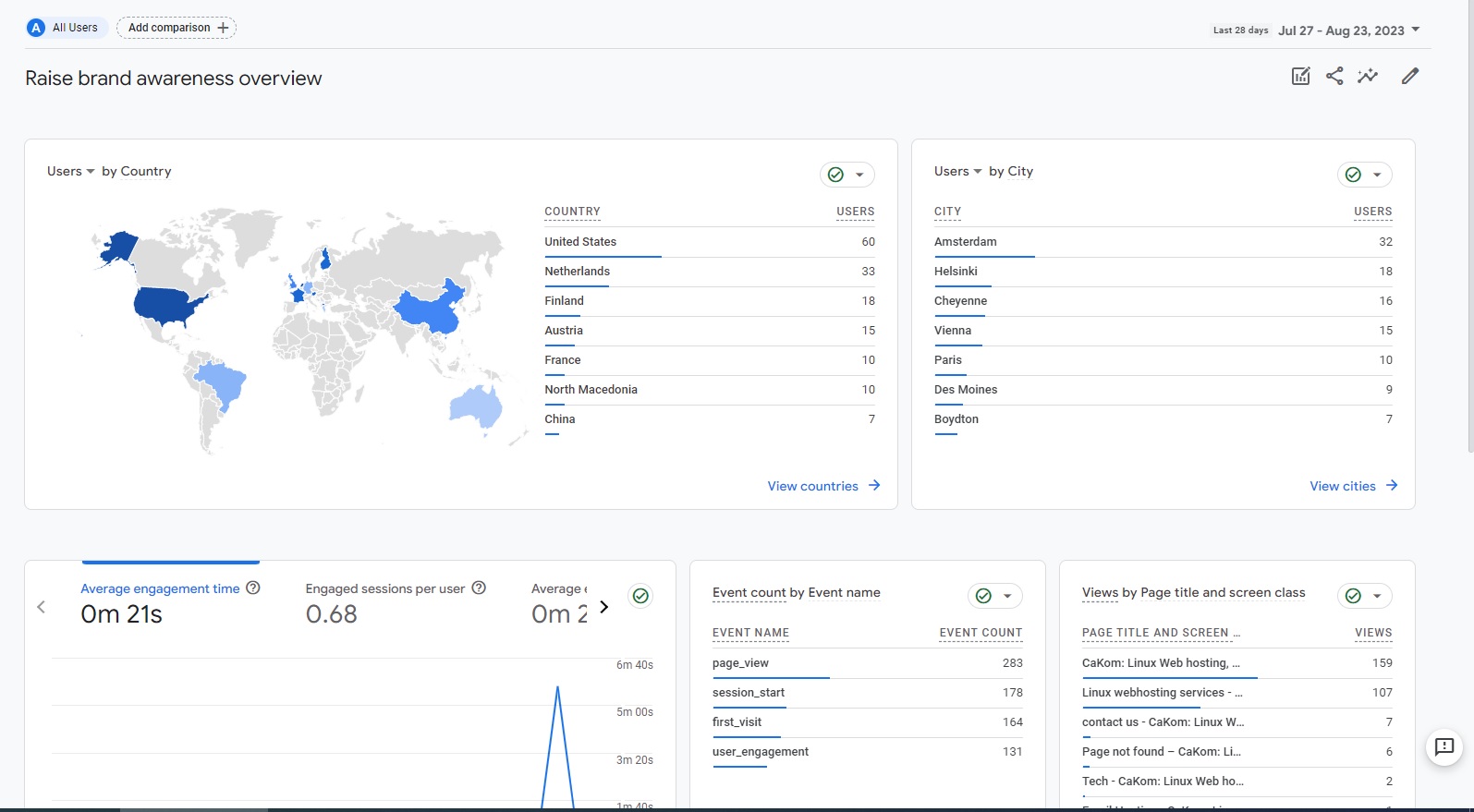What Is Brand Awareness?
Brand awareness is a marketing term for the degree to which consumers recognize a product by its name. Ideally, consumers’ awareness of the brand may include positive perceptions of the qualities that distinguish the product from its competition.
Creating brand awareness is a key step in promoting a new product or reviving an older brand.
Raising brand awareness is a crucial step in growing your business. A strategic approach can help you effectively increase your brand’s visibility and recognition. Here’s a step-by-step strategy to help you achieve this:
1. Define Your Brand Identity:
- Clearly articulate your brand’s mission, values, and unique selling propositions (USPs).
- Develop a consistent brand voice, tone, and visual identity (logo, colors, typography) that resonate with your target audience.
2. Know Your Target Audience:
- Identify your ideal customers and understand their needs, preferences, and pain points.
- Create detailed buyer personas to guide your marketing efforts.
3. Content Marketing:
- Develop high-quality, informative, and engaging content that aligns with your brand’s values and resonates with your audience.
- Create a content calendar to maintain a consistent posting schedule across your blog, social media, and other platforms.
- Share valuable, shareable content, including blog posts, infographics, videos, and podcasts.
4. Social Media Marketing:
- Choose the social media platforms most relevant to your audience.
- Share a mix of content, including educational, entertaining, and promotional posts.
- Engage with your audience by responding to comments and messages promptly.
5. Influencer Marketing:
- Collaborate with influencers in your niche to reach a wider audience.
- Choose influencers whose values align with your brand.
- Encourage influencers to create authentic content that showcases your products or services.
6. Email Marketing:
- Build an email list of interested subscribers.
- Send personalized and relevant email campaigns to nurture leads and drive engagement.
- Include a call to action (CTA) in each email to encourage recipients to take action.
7. Search Engine Optimization (SEO):
- Optimize your website and content for search engines to improve organic visibility.
- Use keyword research to identify relevant search terms.
- Create valuable, informative, and optimized content.
8. Paid Advertising:
- Consider using paid advertising on platforms like Google Ads, Facebook Ads, or Instagram Ads to reach a broader audience.
- Set clear goals and budgets for your advertising campaigns.
- Monitor and analyze the performance of your ads to optimize ROI.
9. Public Relations (PR):
- Develop relationships with relevant media outlets and journalists.
- Pitch compelling stories or press releases related to your brand.
- Leverage PR opportunities to gain media coverage.
10. Monitor and Analyze:
- Use analytics tools to track the performance of your marketing efforts.
- Adjust your strategy based on data insights, focusing on what works best for raising brand awareness.
11. Consistency is Key:
- Maintain consistency in your branding and messaging across all channels.
- Continually refine and adapt your strategy based on changing market trends and audience preferences.
Raising brand awareness is an ongoing process. It takes time and dedication, but with a well-defined strategy and consistent effort, you can steadily increase your brand’s recognition and reputation in your industry.

Why Brand Awareness is important for business?
Brand awareness is critically important for businesses for several compelling reasons:
- Customer Recognition: When consumers are familiar with your brand, they’re more likely to choose it over competitors. Recognition is often the first step toward building trust and loyalty.
- Trust and Credibility: Brands with strong awareness are perceived as more credible and trustworthy. Customers feel more comfortable doing business with brands they know and recognize.
- Competitive Advantage: In a crowded marketplace, having high brand awareness sets you apart from competitors. It gives you an edge when customers are making purchasing decisions.
- Customer Loyalty: Brands that people are aware of and trust tend to have more loyal customers. Loyal customers often become advocates, referring friends and family to your business.
- Higher Perceived Value: Brands with strong awareness are often associated with higher quality and value. Customers are willing to pay a premium for products or services from a recognized brand.
- Easier Introduction of New Products: Introducing new products or services under a well-known brand is easier and more likely to succeed than launching a new brand from scratch.
- Wider Reach: High brand awareness extends your reach. People who may not have an immediate need for your products or services might consider you in the future because they’ve heard of your brand.
- Word-of-Mouth Marketing: When people are aware of your brand, they’re more likely to talk about it with others. Positive word-of-mouth can be a powerful driver of new customers.
- Increased Customer Base: A strong brand presence can attract new customers who are exploring options in your industry. It expands your potential customer base.
- Partnership Opportunities: Other businesses are more likely to partner with you when your brand is well-known. Partnerships can open up new markets and revenue streams.
- Enhanced Pricing Power: Brands with strong awareness can often command higher prices for their products or services. Customers are willing to pay a premium for trusted brands.
- Resilience in Tough Times: Brands with high awareness tend to be more resilient during economic downturns. Customers may prioritize familiar and trusted brands during uncertain times.
- Valuable Asset: Brand awareness is a valuable intangible asset for your business. It can increase the overall value of your company, which is especially important if you plan to sell or seek investors.